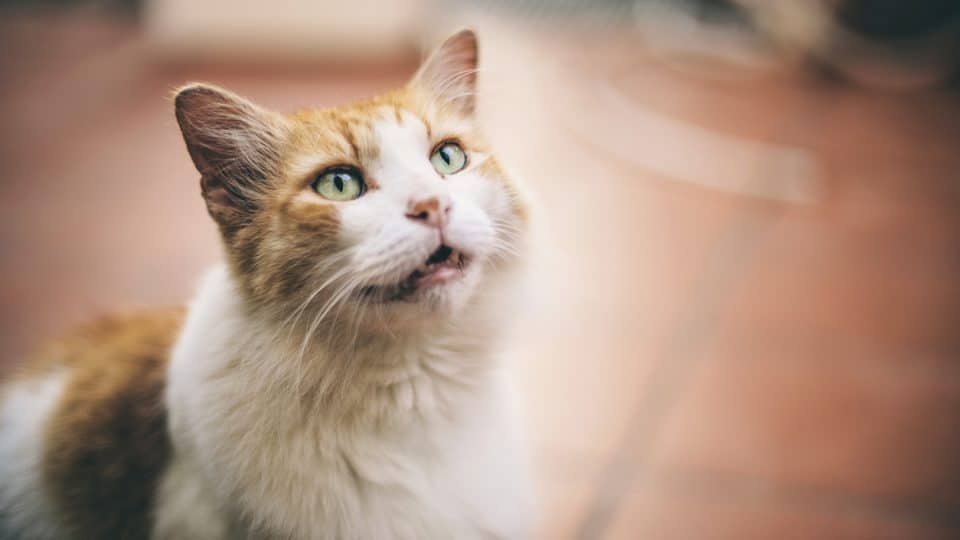Chirping is one of many sounds cats can make. If your cat’s making a noise that sounds like a combination of purring and meowing, they’re probably chirping at you. Cats chirp to greet or acknowledge you, express happiness, get loving attention, or communicate with other cats.
A cat chirps with their mouth closed, which is different from a forced sound made when their mouth is opened, says Stephen Quandt, CFTBS, cat expert and behaviour consultant, and founder of USA-based Stephen Quandt Feline Behavior Associates, LLC. Chirping is a bit like if a human were to hum a tune while blowing air through their loose lips. However, not all cats chirp and this is okay.
Below, we’ll further discuss why cats chirp and how you can respond.
1. They’re Greeting You
Quandt explains that chirping—also known as chattering, twittering or trilling—is usually how cats greet or acknowledge you or other kitties. For example, your cat might chirp at you when you wake them up or come home after being away.
When your cat chirps at you as a greeting, it’s similar to you greeting your loved ones with a ‘hello’ or ‘how are you?’
2. They’re Happy
Cats often chirp when they’re happy or content. Quandt says it’s the same as a human smiling when they’re happy.
This is why many cats chirp when they’re playing, when you touch or pet them, or when it’s time to eat.
3. They’re Seeking Attention
Sometimes, cats chirp when seeking your attention, especially if they want you to follow them. However, Quandt suggests that context matters here.
For example, if your cat chirps at you for a moment when you walk into the room, it’s likely a greeting or a sign of happiness. However, if they headbutt you while chirping, they probably want attention.
If you notice your cat chirping and walking away to their treats or food and water bowl, they might want you to feed them. No matter what they’re chirping for, choosing to go with your cat tells them you’re listening to their wants and needs.
4. They’re Hungry
Luckily, cats don’t often chirp when they’re hungry. Quandt says they usually meow.
However, some cats do chirp when they’re hungry, especially if they see you preparing their food and want to express happiness or contentment. Cats can also learn to make specific sounds, depending on how you respond. For example, if you respond positively to chirping, they might chirp to let you know they want to eat.
5. They’re Communicating With Other Cats
Cats might chirp to greet other cats if they’re happy to see them or want to play.
Quandt says a common belief is that mother cats chirp to get their young to follow them. This instinctual behaviour is why your cat may also chirp if they want you or another cat to follow it.
How Should You Respond to Cat Chirping?
Cats chirp when they’re happy or want your attention, so you should feel honoured when they do it, says Dr Preston Turano, a veterinarian and spokesperson with Felix Cat Insurance.
Since chirping represents good emotions, you should reinforce that by responding positively. Some ways to reinforce chirping include:
- giving them pets
- feeding them a delicious treat
- carve out some cuddle time
A positive response is especially helpful for strengthening your bond and building trust with your cat.
Should I Worry About Cat Chirping?
Thankfully, there’s no reason to worry about cats chirping, whether they do so frequently or not at all. “[It’s] is a form of communication, but not all cats do it,” Dr Turano says. Remember, every cat is unique and has different personalities; some are more shy than others.
Female cats may also chirp more because it’s a natural instinct, especially if their mother did it when they were a kitten.
If your cat does chirp, it generally means you’re doing something they like, and they want to show you love. Therefore, lots of chirping isn’t worrisome and simply means they’re happy.



